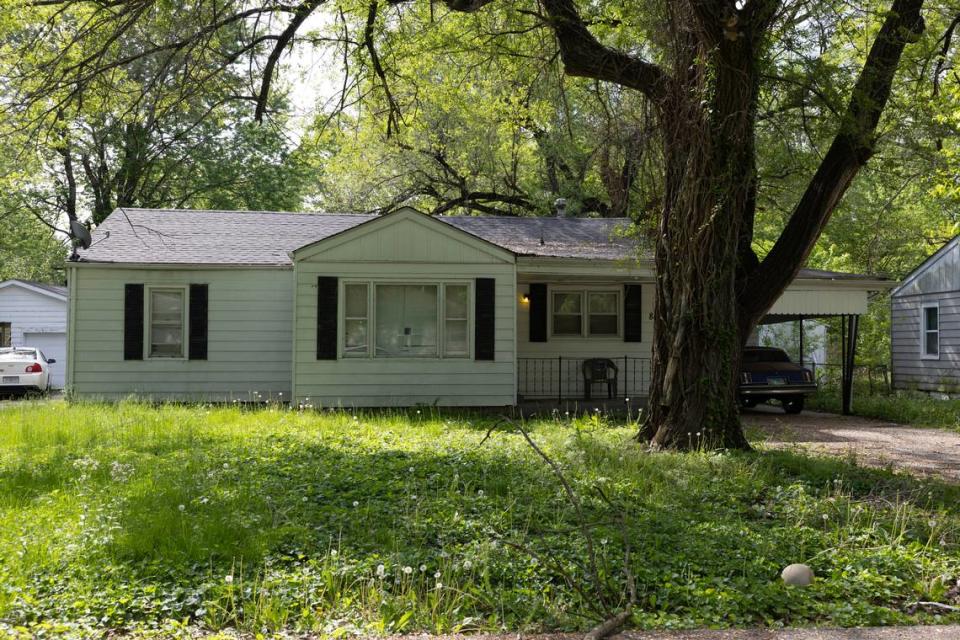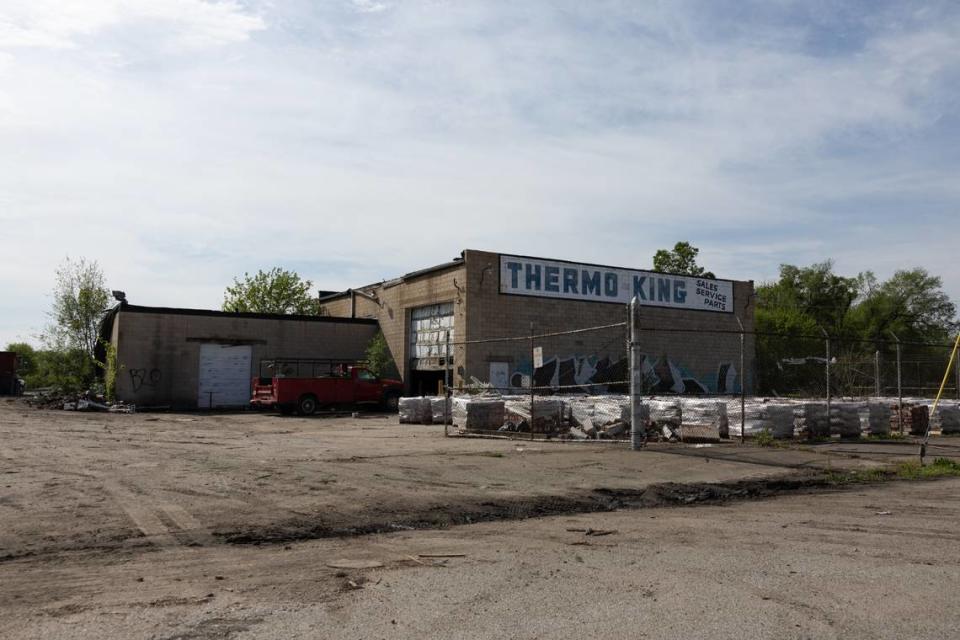Residents who lost property due to unpaid taxes say St. Clair County owes them money
In Reality Check stories, BND journalists dig deeper into questions over facts, consequences and accountability. Read more. Story idea? newsroom@bnd.com.
St. Clair County residents and a business owner who lost their residential and commercial properties due to unpaid taxes filed a federal lawsuit this month arguing the county owes each of them thousands of dollars.
Their properties were worth more than the back taxes they owed. They argue that after foreclosure, they should have received compensation for their lost property: the difference between what they owed the government and the fair market value of their property. And they cite a recent U.S. Supreme Court decision to support their argument.
The lawsuit asks the court to treat the case as a class action to potentially include thousands of Illinoisans who lost properties to tax foreclosure in 2023 or 2022. The complaint is seeking compensation for each of them, plus damages for the financial, emotional, psychological and physical health effects of losing their homes and businesses.
It was filed April 10 in U.S. District Court for the Southern District of Illinois against St. Clair County and the county tax collector, Treasurer Andrew Lopinot, as well as Sangamon County and its treasurer. (Two Springfield residents are also among the plaintiffs.)
St. Clair County has not yet responded to the lawsuit in federal court.
In response to the BND’s request for comment this week Lopinot deferred to the St. Clair County State’s Attorney’s office, which declined to comment on ongoing litigation.
What happens if taxes go unpaid
If someone stops paying property taxes, the county can recoup the money by selling unpaid tax bills to private investors, who cover the cost for the property owner in exchange for a lien on the property.
Property owners owe the private investors the amount of their back taxes plus interest. If they can’t pay within a certain time — up to three years — the investors can petition the court to take their property. A judge can direct the county to issue a tax deed, transferring ownership to the investor.
The county can also take possession of a property after three years of unpaid taxes and keep it or sell it at an auction. Bids for a property start around $700. The highest bid at an auction in January was $26,652.
Even when a private investor is profiting from the tax foreclosure process, rather than the government, the lawsuit argues the county is responsible because the investors wouldn’t have the power to take the property without government authorization.
The complaint notes the Illinois Legislative Investigative Commission recommended back in the 1970s that the state should change the law so that any surplus money from a delinquent property’s sale — after the government or tax buyer gets what they’re owed — is returned to the original property owner to “eliminate the possibility of a tax buyer reaping an unearned windfall at the expense of those who can least afford it.” The recommendation was ignored, the lawsuit states.
Two plaintiffs from East St. Louis and East Carondelet lost homes estimated to be worth ten times the cost of their unpaid taxes, according to the lawsuit, which cited fair market values from national property valuation websites like Zillow and Redfin.
Shirley Ferrell of East St. Louis and Don J. Gillam of East Carondelet owed between $7,000-$10,000 in back taxes on homes worth $84,000-$112,000.
Ferrell thought her property taxes were being taken out with her mortgage payments, the lawsuit states.
Another plaintiff, Shelly Branson of Cahokia Heights, fell behind on paying property taxes in the wake of his wife’s death several years ago, according to the complaint. He owed about $14,000 on an East St. Louis home worth $76,000.
The other St. Clair County plaintiffs include Trenise Hill, who owed about $8,000 on her $58,000 Cahokia Heights home, and Swansea resident Debra Mosby, who owed about $14,000 on a $53,000 East St. Louis home she owned.
The business owner plaintiff, Top Metal Buyers Inc., lost a building in East St. Louis. It owed about $44,000 on the $102,000 property.
Their properties are now owned by companies and in some cases other individuals, according to county property records. The complaint describes the plaintiffs’ losses as “institutionalized theft.”
“Numerous academic and advocacy reports made Illinois state and local governments aware that their policies were outrageous and especially damaging to their most vulnerable populations: the elderly, communities of color, and those who speak English as a second language,” the lawsuit states. “Yet they chose to persist in these policies even knowing of their effects because they wanted the cash.”

Recent Supreme Court decision applied in Illinois
The U.S. Supreme Court ruled last spring that a similar practice in Minnesota violated the Fifth Amendment, which prohibits the government from taking private property without paying “just compensation” to the property’s owner.
In the Supreme Court case, a condominium owner owed $15,000 in property taxes, so the county seized the property, sold it for $40,000 and kept the $25,000 excess over the tax debt instead of turning it over to the condo owner.
The lawsuit against St. Clair County is arguing people who lost their properties to tax foreclosure are owed the difference between their back taxes and the fair market value of their property, not the difference between back taxes and a sale price like the case the Supreme Court considered.
Attorney Daniel Suhr, who is representing the St. Clair County plaintiffs, said that’s because some foreclosed property in Illinois is never auctioned by the counties and because other Supreme Court decisions have said the fair market value is the right comparison point for determining “just compensation.”
County governments facing lawsuits similar to the one filed against St. Clair County have argued the recent Supreme Court decision in Minnesota shouldn’t apply to Illinois because of a difference in the law.
Unlike Minnesota, Illinois offers a way for property owners to recover lost equity after a tax foreclosure, the counties argued.
Every tax buyer pays a fee of no more than $20 that goes into a county indemnity fund, and property owners can apply for compensation from the funds.
The St. Clair County plaintiffs argue indemnity funds aren’t an adequate solution because counties don’t inform property owners that the funds exist, they are “woefully, structurally underfunded,” and they come with restrictions that exclude some property owners.
Top Metal Buyers Inc., one of the St. Clair County plaintiffs, isn’t eligible for indemnity fund compensation because it owned a commercial property, according to the lawsuit.
“Our lawsuit uniquely focuses on those populations and not just on single family residential homes,” Suhr said. “Commercial property owners are just as protected by the Fifth Amendment.”

Judges in the other Illinois cases, which are further along in proceedings, have not yet ruled on the county governments’ argument about indemnity funds.
If the St. Clair County lawsuit moves forward as a class action, it proposes the other plaintiffs should include people in similar situations as the named plaintiffs but exclude those in northern Illinois. The other pending lawsuits already cover property owners in those counties.
The St. Clair County suit proposes the defendants should include Illinois county governments, treasurers and sheriffs who help execute foreclosures.
If the court certifies those plaintiff and defendant classes, the lawsuit argues that Lopinot is a “natural representative” for the defendant class because he is the president of the Illinois County Treasurers Association.
In Minnesota where the Supreme Court case was decided, class action lawsuits have resulted in a proposed $109 million settlement from the state to pay Minnesotans who lost properties to tax foreclosures. Lawmakers are also working to change the state law to require surplus proceeds from a property taken for back taxes be returned to property owners.
Lawsuit filed over delinquent property tax sale system in Illinois by Lexi Cortes on Scribd

